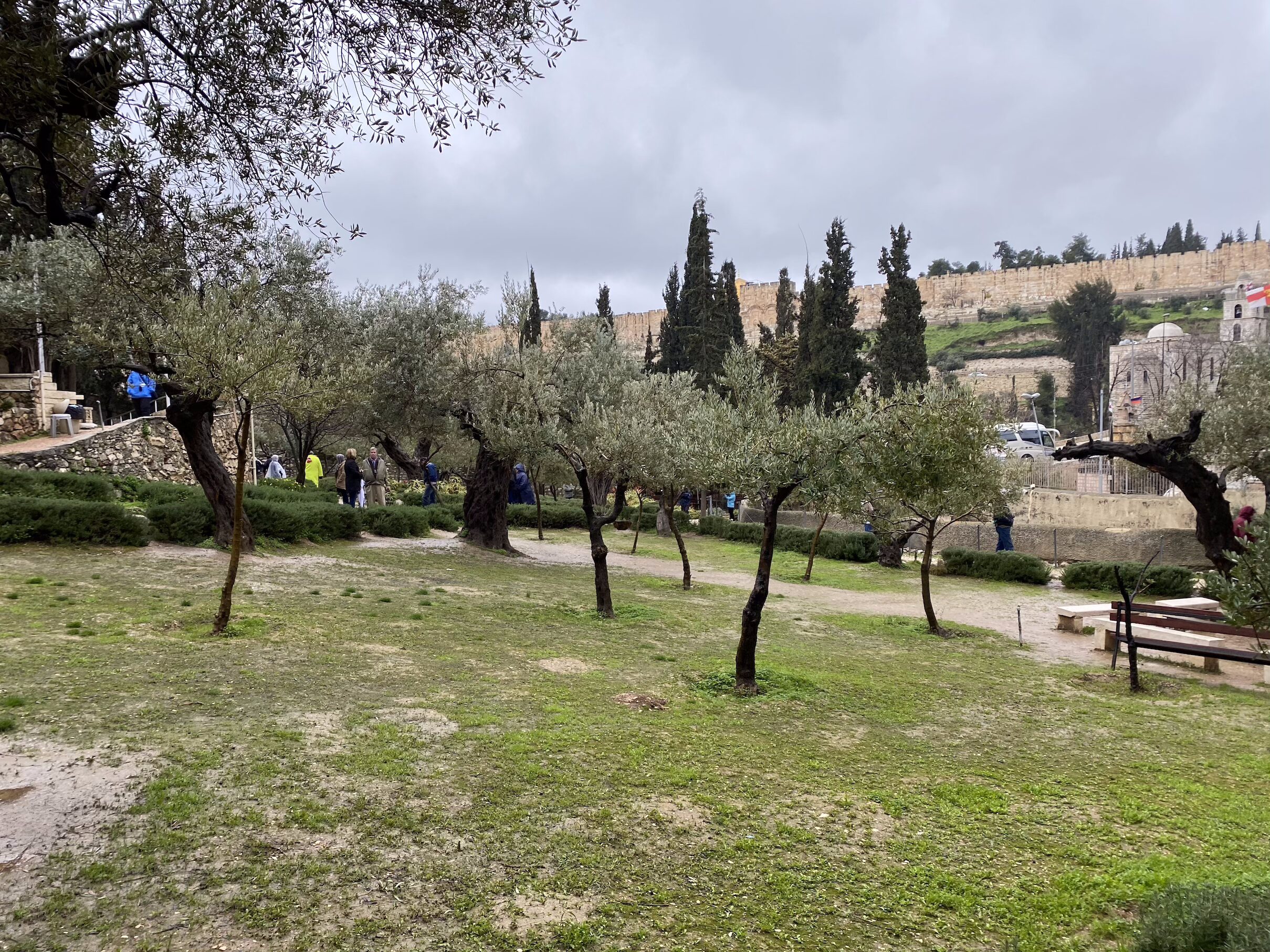After Jesus had said these things, he went out with his disciples across the Kidron Valley, where there was a garden, and he and his disciples went into it. Judas, who betrayed him, also knew the place, because Jesus often met there with his disciples. So Judas took a company of soldiers and some officials from the chief priests and the Pharisees and came there with lanterns, torches, and weapons.
Then Jesus, knowing everything that was about to happen to him, went out and said to them, “Who is it that you’re seeking?”
“Jesus of Nazareth,” they answered.
“I am he,” Jesus told them.
Judas, who betrayed him, was also standing with them. When Jesus told them, “I am he,” they stepped back and fell to the ground.
Then he asked them again, “Who is it that you’re seeking?”
“Jesus of Nazareth,” they said.
“I told you I am he,” Jesus replied. “So if you’re looking for me, let these men go.” This was to fulfill the words he had said: “I have not lost one of those you have given me.”
Then Simon Peter, who had a sword, drew it, struck the high priest’s servant, and cut off his right ear. (The servant’s name was Malchus.)
At that, Jesus said to Peter, “Put your sword away! Am I not to drink the cup the Father has given me?” John 18:1-11 (CSB)
Pay close attention to the “I Am” statements within this text. What happens after Jesus says it?
John knew what he was saying, and is intentionally connecting Jesus to Yahweh, and paralleling this garden experience to both Eden and Moses’ encounter with the burning bush. John connects it throughout the Gospel, with his gospel even referencing Christ as existing with God and as God before time, rewriting the Creation story in Genesis.
This time, when we experience Yahweh, it is not as a friend and companion, like he is in Eden, nor is he seen with reverence and fear as Moses did, who would remove his shoes to tread lightly. Rather this is betrayal. Even then, at the sound of the Holy Name, the guards can’t help but to fall backward. It’s just that reverend.
Think for a moment of yesterday’s text, with Jesus talking to the Father. Contrast it as well to Adam in the Garden with God. The full communion that existed has come back. Jesus is the new Adam, but the one that accomplished faithfulness where the first Adam failed and brought about the curse. In this garden, however, it is not God who will kick humans out, but humans who will attempt to kick God out. Out of our own exile! Even here, in our sorrow, where we were sent to reflect and become humble, we dare confront the very Creator of the universe and chasten him with trespassing on our territory. This is not just betrayal, it’s a sad, blasphemous tragedy, with the main players unable to see the irony of their actions. Like children grounded in their room, attempting to kick the parent out who has come to tell them they are welcome back out.
And look at Jesus’ response. Tempered. Sorrowful, and resigned. How sad, he must be thinking, that they don’t know it doesn’t have to be like this! Instead of fighting, as Peter wants to, he merely hands himself over. If he wanted to he could send armies of Angels (Matthew 26:53)! But this is not God’s way. It’s not the way of love.
Don’t think it was for nothing. I wonder how many of the guards went home changed. I wonder how many who tortured, or brutalized him, were converted, let alone the many billions who would hear the story. The actor Pietro Sarubbi has attested that even when he looked at Jim Cavizel’s suffering character playing Jesus in Mel Gibson’s “The Passion of the Christ” he felt an electric shock run through him that led him to faith.
Love will never come at gunpoint.
Love can never be bought.
Love can never be coerced, or manipulated.
Love can never abuse.
Love will not insist.
Love must wait, until it is welcomed. Until it is wanted. Until then, it will endure what it must, to patiently await all who will finally see.

Leave a Reply
You must be logged in to post a comment.